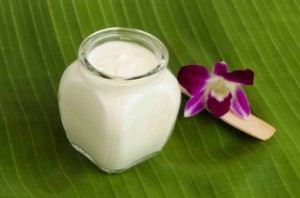 While it is difficult to overestimate the importance of fermented foods most people fall into one of two camps: the fermented foods can save the universe within camp OR the meh, fermented foods; they’re just trying to sell yogurt camp. Both of these perspectives have some of the truth. Let’s take a look.
While it is difficult to overestimate the importance of fermented foods most people fall into one of two camps: the fermented foods can save the universe within camp OR the meh, fermented foods; they’re just trying to sell yogurt camp. Both of these perspectives have some of the truth. Let’s take a look.
Fermented foods can save the universe within
Some people have amazing results from simply adding fermented foods to their diets, any fermented food, any amount. Most people have some results from adding ferments but some don’t get the results they are looking for or expect. There are important differences between people that lead to different results.
The rest of what a person is eating really matters. Fermented foods do much better as a part of a total gut rebuilding program and have a difficult time really taking hold and changing the universe within all on their own. The food we feed our digestive bacteria does more than the probiotics we take. With hundreds and hundreds of bacterial strains in our intestinal tracts when we are born and different exposures to environments, foods, toxins and anti-bacterials (antibiotics) over our lifetimes we each have a unique bacterial blueprint that reflects our birth experience and our life story.
Some people have difficulties detoxifying the byproducts of certain bacteria due to genetic and other health factors. Some people have reactions to certain bacteria. Other bacteria can overproduce and come out of balance when exposed to certain foods (gluten for example), contributing to chronic conditions such as diabetes and celiac disease. This is a unique tapestry for each person. This is why something that is great for one person is not so great for another at a given time. Many different strains of bacteria have been associated with different conditions and it is important to know friend flora from foe before throwing back a few billion of them in fermented foods. And these differences depend on each of us. What may help to balance one person may do the opposite for someone else.
due to genetic and other health factors. Some people have reactions to certain bacteria. Other bacteria can overproduce and come out of balance when exposed to certain foods (gluten for example), contributing to chronic conditions such as diabetes and celiac disease. This is a unique tapestry for each person. This is why something that is great for one person is not so great for another at a given time. Many different strains of bacteria have been associated with different conditions and it is important to know friend flora from foe before throwing back a few billion of them in fermented foods. And these differences depend on each of us. What may help to balance one person may do the opposite for someone else.
Of course I prefer to use testing all of these things BUT here’s a good test: If you are taking a probiotic or eating a new probiotic food and it makes you feel bad/worse and it goes on for longer than you would expect a detox to … take a picture of the label and stop eating it. Just because something is working for someone else doesn’t mean it will work for you and now you can tell them why. Even if it works for everyone else and you’re the exception. If you take another probiotic another time and it makes you feel a certain way you can look back and contrast the labels and over time draw some patterns.

Different types of bacteria “belong” in different parts of the digestive tract. An overgrowth of the “wrong” type of bacteria in the wrong place can cause serious problems for some people and supplementing with those bacteria of course would not be a great idea in that case. This kind of overgrowth and be very difficult to conquer or narrow down but it can be done as a part of a whole digestive rebuilding program that takes into consideration pH of different body systems, minerals required for digestive function, water, physical function, rebuilding the digestive organs, detoxifying the colon, targeted super herbs, amino acids/fatty acids/nutrients that are essential for digestive healing, removing trigger foods, rebuilding the flora and immunity.
Meh; They’re just trying to sell yogurt
Yes! Yes they are! As someone who is trying to sell people yogurt I must assure you that “they” are definitely trying to sell you yogurt, that’s their job.
In order for a food to be labeled as probiotic it must contain one of the  bacterial strains “proven” through research to be beneficial to human health. The bacteria on this probiotic list have been studied mostly in research funded by the yogurt companies. If you remember above that there are thousands of bacterial strains that inhabit the digestive tract during our early lives out of thousands and thousands of possibilities you can see that this handful of proven bacteria is a drop in the proverbial gut bucket.
bacterial strains “proven” through research to be beneficial to human health. The bacteria on this probiotic list have been studied mostly in research funded by the yogurt companies. If you remember above that there are thousands of bacterial strains that inhabit the digestive tract during our early lives out of thousands and thousands of possibilities you can see that this handful of proven bacteria is a drop in the proverbial gut bucket.
Not all bacteria are good, it is true that there are some less desirable strains for sure but they are by far the minority. Like less than 2% are outright harmful. However there are more than a handful of good ones and just because they were not featured in a study funded by someone’s pocketbook does not mean they are less good. Some bacteria are more expensive or even impossible to replicate in a lab in a financially viable way. Those, for the most part, haven’t been studied. This is why many fermented foods and live cultured foods are not labeled as probiotic. Labelling can be very political.
Here is one example: Companies can patent bacteria. And study them. They can then claim that only their yogurt can restore balance in a certain way because it is the only one containing this bacteria specifically. I have a gut feeling that they are more interested in their bottom line than my health.

Yogurt cultures can be excellent for health but can have a very difficult time rebuilding native flora on their own. I would say that yogurt cultures cannot rebuild native flora but I hate to be so black-and-white. These types of bacteria cannot set up camp and build a new colony in the digestive tract on their own as they are mostly transient bacteria. Transient is still good! They will help to digest food, they will push out other strains that don’t really belong their and they can change the environment to make it much healthier.
In this article I have not taken the time to address the other ingredients and constituents in yogurt. Some of those ingredients can really get in the way of a healing protocol. It is no secret I skip the dairy but this is a topic for another article.
Please let me know what you think about patenting bacteria, building digestive health and whether you make or buy probiotics in the comments above this article.
Read more



 harmful ones in check and in balance. Different bacteria have different abilities when it comes to breaking down foods and other substances. One thing that some of the strains of “bad” bacteria excel at is breaking the harmful estrogens away from the glucoronic acid through an enzyme (byproduct) that they create. This makes the estrogens active again. With a sluggish, leaky or imbalanced digestive tract many of these estrogens can then be reabsorbed and the cycle begins all over again. As you can see over time there can be quite a backup of estrogens in the liver waiting to be detoxified.
harmful ones in check and in balance. Different bacteria have different abilities when it comes to breaking down foods and other substances. One thing that some of the strains of “bad” bacteria excel at is breaking the harmful estrogens away from the glucoronic acid through an enzyme (byproduct) that they create. This makes the estrogens active again. With a sluggish, leaky or imbalanced digestive tract many of these estrogens can then be reabsorbed and the cycle begins all over again. As you can see over time there can be quite a backup of estrogens in the liver waiting to be detoxified.
 due to genetic and other health factors. Some people have reactions to certain bacteria. Other bacteria can overproduce and come out of balance when exposed to certain foods (gluten for example), contributing to chronic conditions such as diabetes and celiac disease. This is a unique tapestry for each person. This is why something that is great for one person is not so great for another at a given time. Many different strains of bacteria have been associated with different conditions and it is important to know friend flora from foe before throwing back a few billion of them in fermented foods. And these differences depend on each of us. What may help to balance one person may do the opposite for someone else.
due to genetic and other health factors. Some people have reactions to certain bacteria. Other bacteria can overproduce and come out of balance when exposed to certain foods (gluten for example), contributing to chronic conditions such as diabetes and celiac disease. This is a unique tapestry for each person. This is why something that is great for one person is not so great for another at a given time. Many different strains of bacteria have been associated with different conditions and it is important to know friend flora from foe before throwing back a few billion of them in fermented foods. And these differences depend on each of us. What may help to balance one person may do the opposite for someone else.
 bacterial strains “proven” through research to be beneficial to human health. The bacteria on this probiotic list have been studied mostly in research funded by the yogurt companies. If you remember above that there are thousands of bacterial strains that inhabit the digestive tract during our early lives out of thousands and thousands of possibilities you can see that this handful of proven bacteria is a drop in the proverbial gut bucket.
bacterial strains “proven” through research to be beneficial to human health. The bacteria on this probiotic list have been studied mostly in research funded by the yogurt companies. If you remember above that there are thousands of bacterial strains that inhabit the digestive tract during our early lives out of thousands and thousands of possibilities you can see that this handful of proven bacteria is a drop in the proverbial gut bucket.






